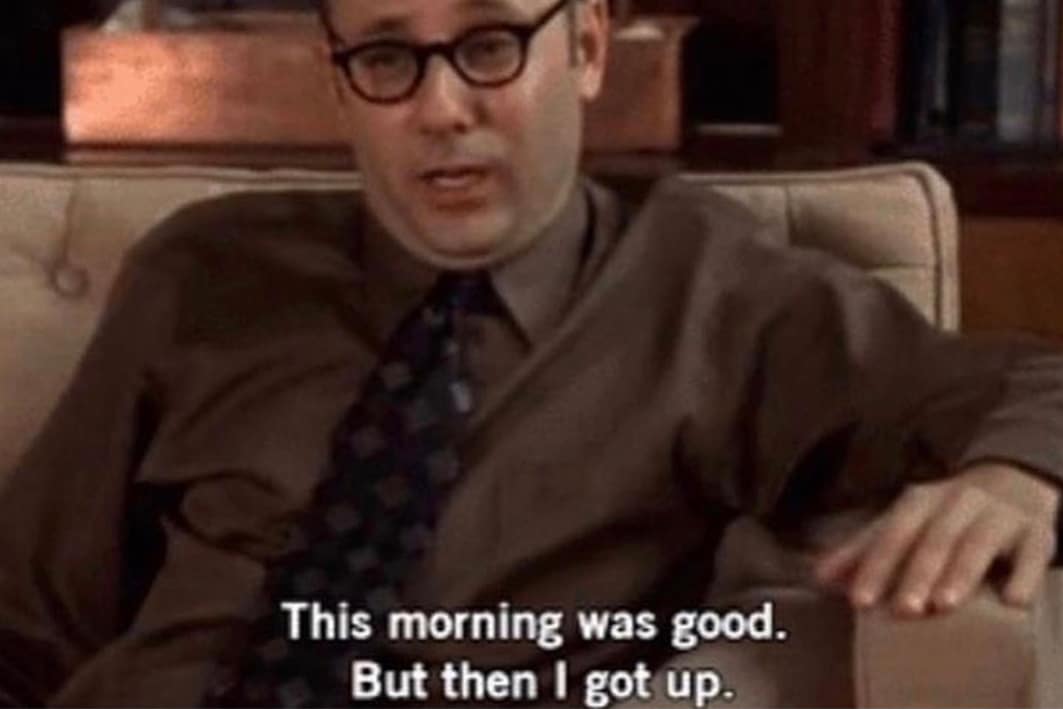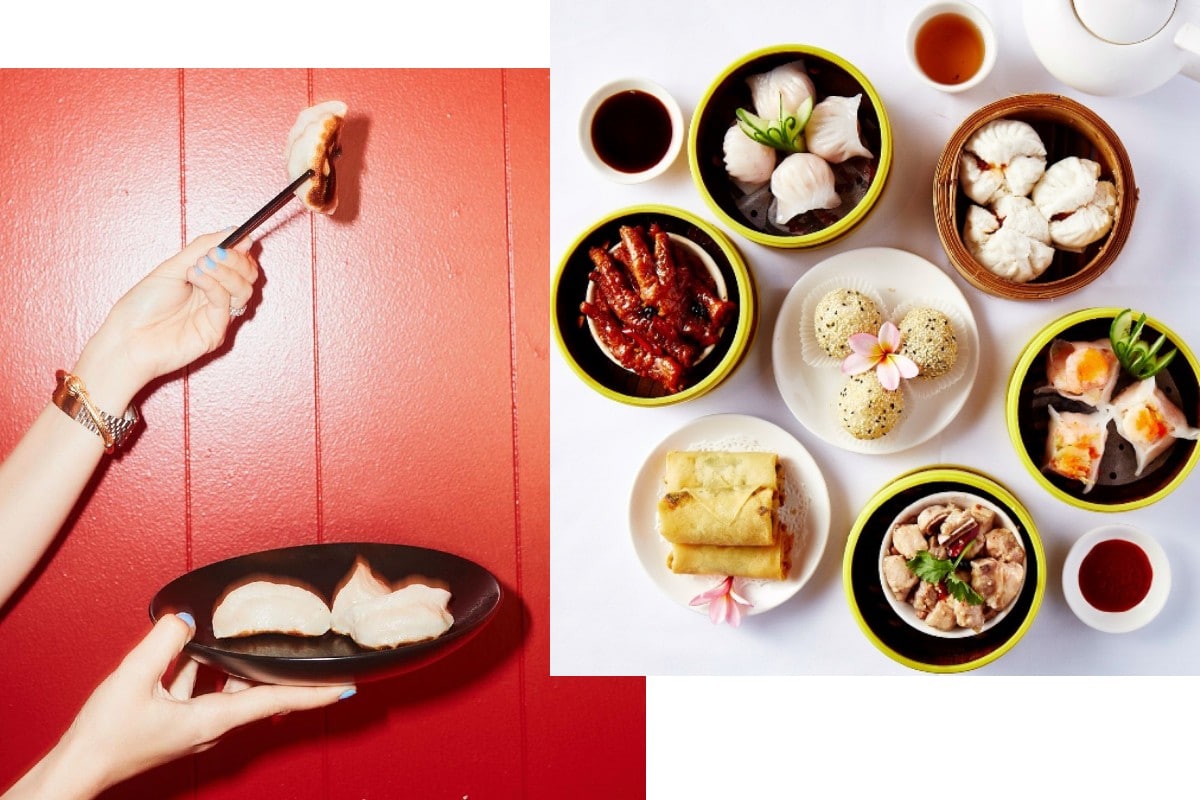
On a walk with a friend this morning, she expressed that despite never having dealt with anxiety before, she was feeling it in bouts over the past weeks. A sentiment that we are all familiar with 11 weeks into NSW's third lockdown (counting the difficult Christmas lockdown) with little hope in sight.
For those of us who live with anxiety, lockdown looks like waking up each day with a very basic plan of what needs too be done and constantly feeling as though you've forgotten about something major while simultaneously not having the energy or bandwidth to figure out what could be forgotten. For those who don't experience anxiety on a daily basis, these feelings are jarring and discombobulating. Nowhere to go and yet so many impending feelings to sort through. But when the world has been dealing with an unending slew of bad news stacked upon a global pandemic lasting for nearly two years now, is it even fair to compound such feelings into the category of pandemic burnout? Could it just be that the news cycle is relentless and everything feels hopeless? And so here we are, the new generation with the pressure of the world on our backs to both relish in our youth, attempt to "make something of ourselves" in a late-stage capitalist world as soon as possible, combat climate change, and cope with the devastating effects of all that the world throws at us, all while showing up on Instagram each day for a hit of serotonin and the assurance that an email has in fact found us well.
Most days I do not feel I am found well. Most days, I am doing my best to undo the effects that the 2019/20 Australian bushfires had on me when I thought I would lose my family home, and then when I thought I might lose my parents to COVID-19. Then came the Black Lives Matter movement, where harrowing scenes of racial injustice and violence forced us all to do some very necessary work towards anti-racism, and to this day haven't left us. There have been scenes from war, countless climate change-related natural disasters, anti-vax movements leaving us feeling frustrated and hopeless, archaic abortion laws wreaking havoc on women's lives in the US, all while COVID-19 forges ahead, despite our best efforts to control it. Add any kind of personal event into the scope of things, and it's a surprise we're getting through the day at all.
It plays out in ways that are out of character, like the lack of wanting to check in with friends. These days, I am rarely in the mood to update those I am closest to on life. I yearn to skip the "how are you's" and "what's beens happening's" and plunge straight into cackling on the floor with my friends around a glass of wine or talk about something as trivial as someone mansplaining something to me on the street. Reaching out has become exhausting at a time when it is more crucial than ever to ask such questions, and we are left untethered in a sea of meaningless Zoom calls and sad, relatable internet memes we send to each other to signal that our sense of humour is white knuckling it alongside us until the end.
To be clear, the proximity to privilege I have experienced throughout this does not go unacknowledged concerning my race, physical location, and current financial security - these are, of course, the things we must use as a measure of perspective when discussing hardship of any kind. It is also important to note that while lockdowns are exhausting, they are important for the safety of public health, and we do not challenge these necessary measures in any way. My point, however, is to touch on our collective exhaustion as a generation. How can we call it pandemic burnout when there is so much more at play?
Steven Taylor, a professor and clinical psychologist at the University of British Columbia, told ABC News that at the start of the pandemic, people had the hope that once restrictions were eased, the crisis would essentially be over.
“Then the second wave occurred and people in many countries were back in lockdown. In technical terms, people were in a situation of ‘frustrative non-reward’. They thought they would be rewarded with an end to the pandemic, but that reward was taken away from them. Understandably, people were frustrated,” he said.
“More generally, the stressfulness of a pandemic is related to how long it lasts. People are exposed to chronic stressors as pandemics drag out over many months and multiple lockdowns. That wears people down.”
This, coupled with the lack of reward from essentially every other social justice, climate justice, and humanitarian movement that has occurred in the past years, certainly evokes a sense of hopelessness. On R U OK? day in Australia, the conversation around mental health needs to expand.
It is easy for us to be rooted in the moment when the media cycle moves on so quickly.
We barely had a moment to recover from the effects the bushfires had on so many of us before we had to worry about the first global pandemic in over a century.
There has been no reprieve, and certainly very few tangible, positive results that the countless protests and movements have been calling for. World leaders are still combatting climate change, if at all, at an alarmingly slow rate; police brutality and racial injustice continues to occur daily in the US and on our home soil - the unceded, stolen Aboriginal land we call home; The Australian Prime minister Scott Morrison continues to let us down every step of the way, whether it's regarding climate change, an effective vaccine roll out, or providing those at risk in Afghanistan safe refuge in the high volumes necessary.
The exhaustion no longer comes in waves, it is here now, floating in my subconscious like a helium balloon at a birthday party, deflating as the time passes, with each catastrophic event. It is important to acknowledge that as bystanders to much of these crises, our privilege is almost insurmountable in the scheme of it all. It is also important to acknowledge that coping with this much, in such a compressed time frame, is not something anyone could have anticipated, and there can be room for the toll that it takes in tandem with gratitude for our circumstances.
Showing up each day and acting as though everything is pretty good because it could definitely be worse is surely not the way out of this. When connection is key, let's create space in the conversation for things to not be ok.
If this article brings anything up for you or you are experiencing mental distress, please call any of the below resources for support.
Mental health resources
Lifeline on 13 11 14
Kids Helpline on 1800 551 800
MensLine Australia on 1300 789 978
Suicide Call Back Service on 1300 659 467
Beyond Blue on 1300 22 46 36
Headspace on 1800 650 890
QLife on 1800 184 527



